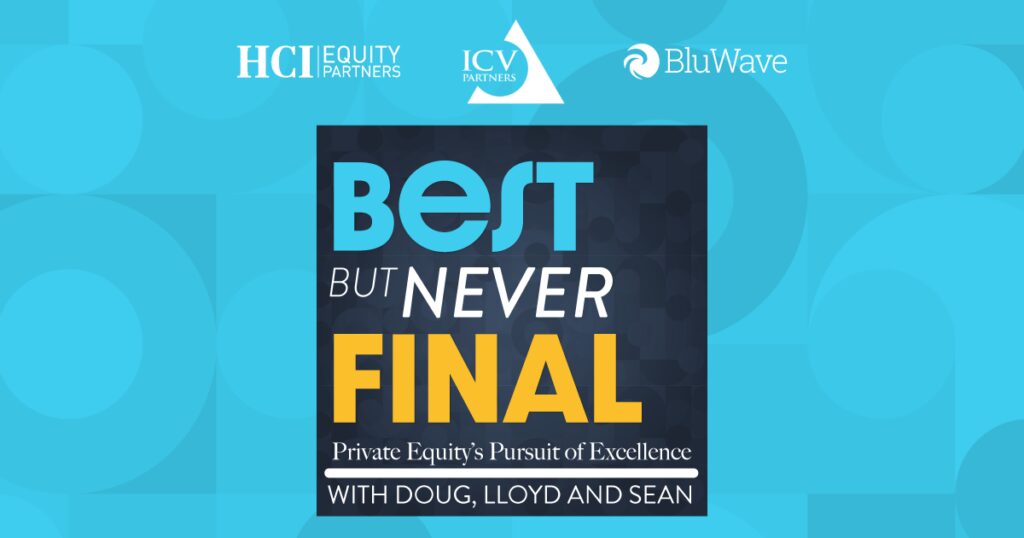Revenue operations is a valuable strategy businesses use to align sales, marketing, customer success and finance operations to drive growth. RevOps is not just a buzzword; it represents a holistic approach to removing silos between departments, ensuring that each function is working toward the same goals.
By integrating processes, people and technology across the organization, RevOps facilitates a seamless customer journey, from initial awareness through to renewal and expansion.
Private equity firms can benefit from implementing a revenue operations strategy as part of their due diligence process. Traditionally focused on financials, competitive analysis, legal compliance and market position, due diligence that includes a company’s revenue operations provides even greater return on investment post-acquisition.
“Historically, nobody thought about rev ops during the diligence process,” says Max Scaler*, co-founder of MegaGrowth, a service provider in the Business Builders’ Network. “There’s a growing awareness that you need to consider it at least early in an investment.”
This early analysis allows investors to devise a roadmap for RevOps, ensuring the acquired company can hit the ground running post-deal.
READ MORE: Equipping Your Sales Team with ICPs, TAMs Using RevOps

RevOps Process in Due Diligence
When MegaGrowth works with PE firms at the diligence stage, they do what Ryan Murphy*, the service provider’s other co-founder, calls a “soup-to-nuts diagnostic analysis.” This exercise leaves the firm and its portco, should they sign off on the deal, with a clear path forward. It also identifies any risks to the business the PE firm should know about.
READ MORE: What is Commercial Due Diligence?
“What should we prioritize? What projects do we do first, second, third, and building a roadmap, usually for six months or a year at least,” he says. “On day one we’re going to have them launch off and start working on this roadmap. And here’s why, and here’s the return we’re gonna get for each stage. And that’s what we would advocate people do.”
Maximizing the Investment Period
“It’s not just about bolting these together,” Scaler says, “it’s thinking of it as one cohesive process.”
The MegaGrowth co-founder says PE firms typically think about RevOps tactics about six months post-acquisition. It then takes another six months to implement them, meaning the business misses out on an entire year of more efficient growth.
Instead, private equity firms should incorporate revenue operations into their due diligence process.
Case Study: Board Member To Enhance Operations for Orthopedic Practice Growth
“Once you’ve got an LOI in place, that’s when it makes a lot of sense to start thinking about this,” Scaler says.
This way, PE firms identify potential efficiencies and growth levers within an investment. Expert third parties who do this on a regular basis can then provide the firm and its portfolio company with a detailed roadmap for post-acquisition value creation.
Budget Planning
Another reason to get a jump on RevOps initiatives is that it makes it much easier to find room in the budget.
“If you did the analysis right after the LOI and you understood what you have, you can earmark or bookmark money for it a lot earlier and then get the investment faster,” Murphy says.
If the company is going to need a new software, it makes more sense to fold that cost into the overall purchase price instead of creating a new line item months into the partnership.
“If the company needs a Salesforce upgrade, if it needs whatever else – a CRM – it’s a lot easier to have that conversation and put it into the company plan when you’re buying it,” Murphy adds. “Once that deal closes and they bought the company it’s very hard to find budget six months afterward once you find these issues and you can’t get it working right.”
READ MORE: How RevOps Accelerates Time to Value for Investments
When private equity firms invest in revenue operations by partnering with experts like MegaGrowth, they open the door to moving up their value creation timeline while significantly enhancing the return on investment in their hold period.
The RevOps resources in the Business Builders’ Network specialize in helping PE firms on an industry-by-industry basis. They have worked alongside countless companies to operate more efficiently, saving time and money that comes back to them at the end of their hold period.
When you’re ready to connect with one of these service providers, our research and operations team will be here to help. They’ll scope your need and provide a short list of tailor-made options within a single business day. Set up a call today to make revenue operations a part of your due diligence process.
*Privacy is important to us. While the source and company name have been changed, these are real quotations from a real service provider in the BluWave Business Builders’ Network.





















